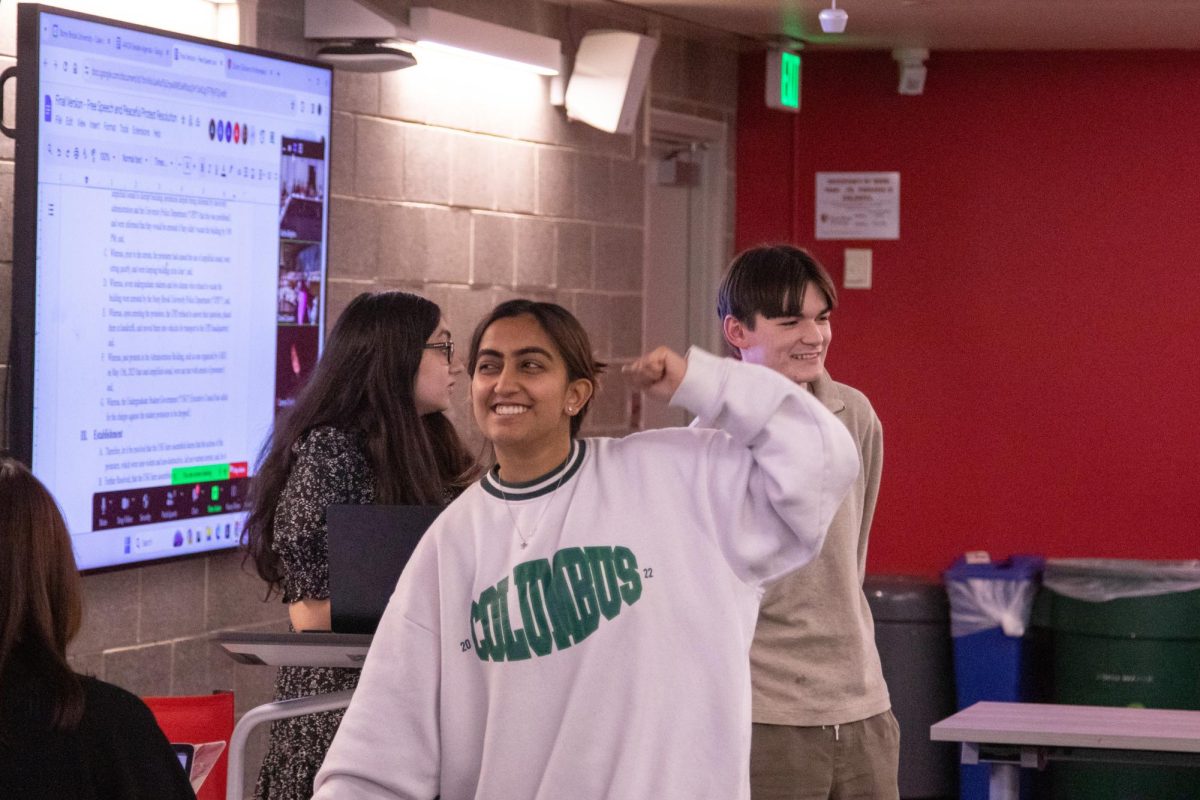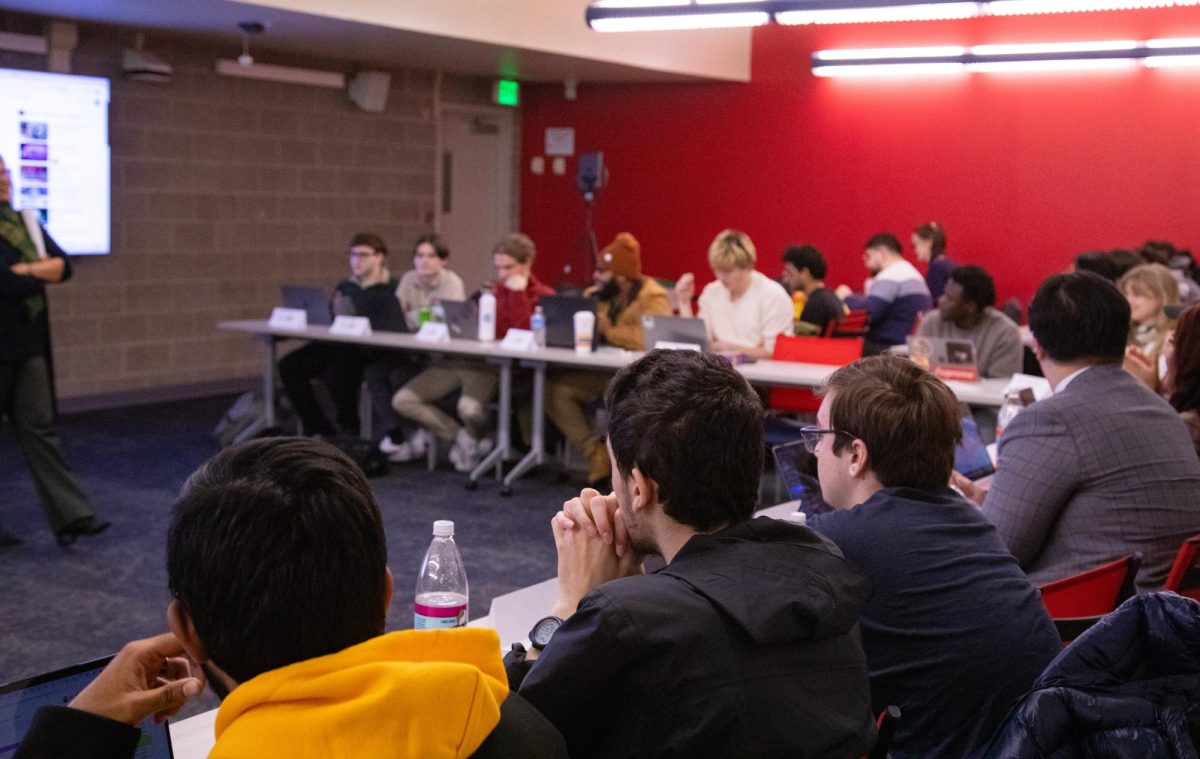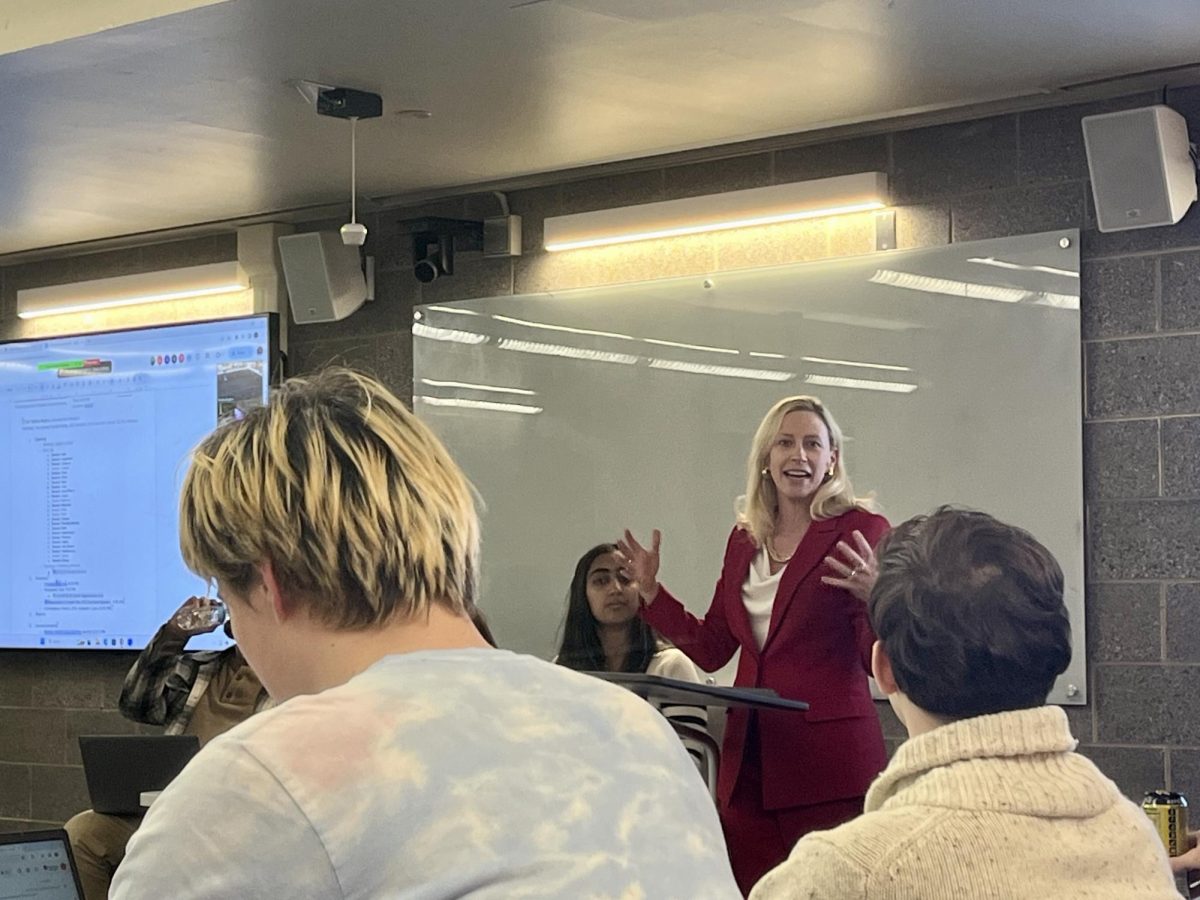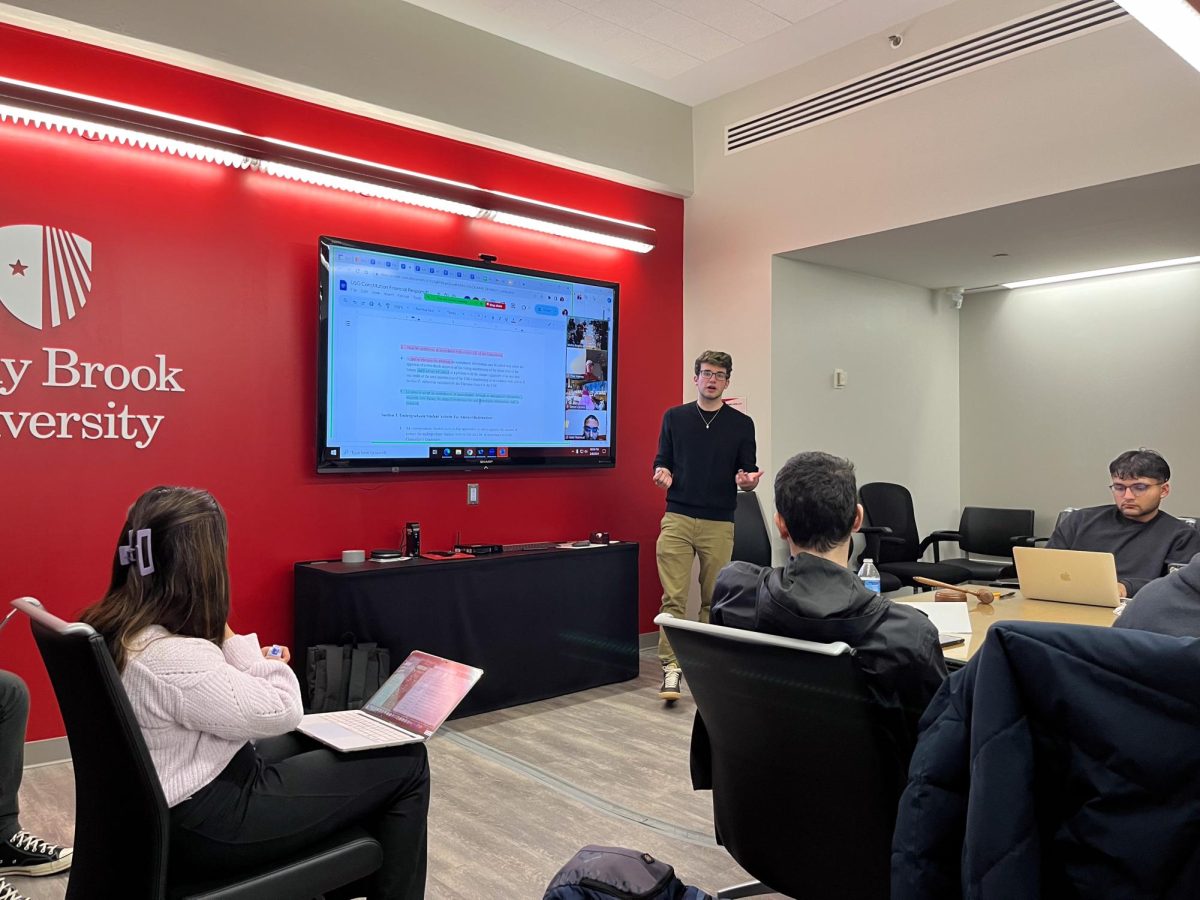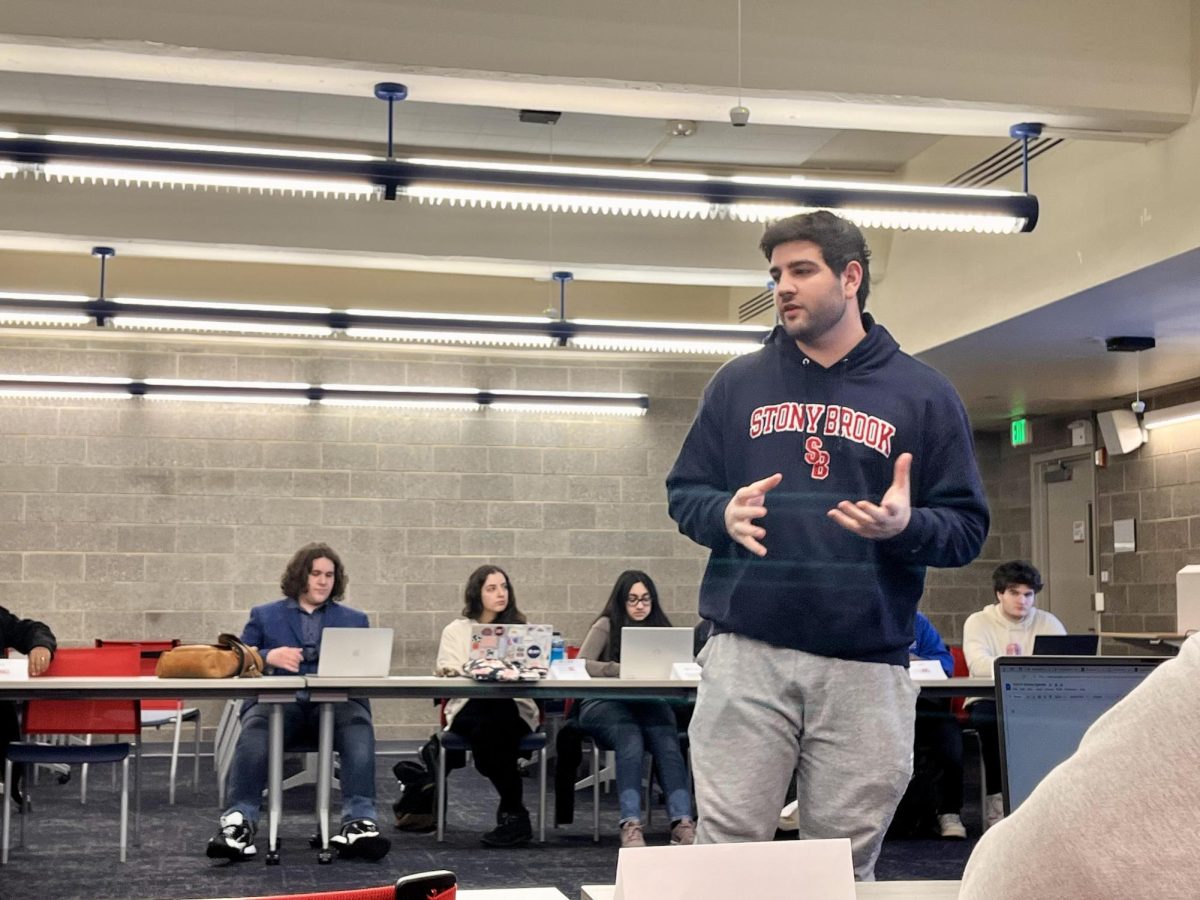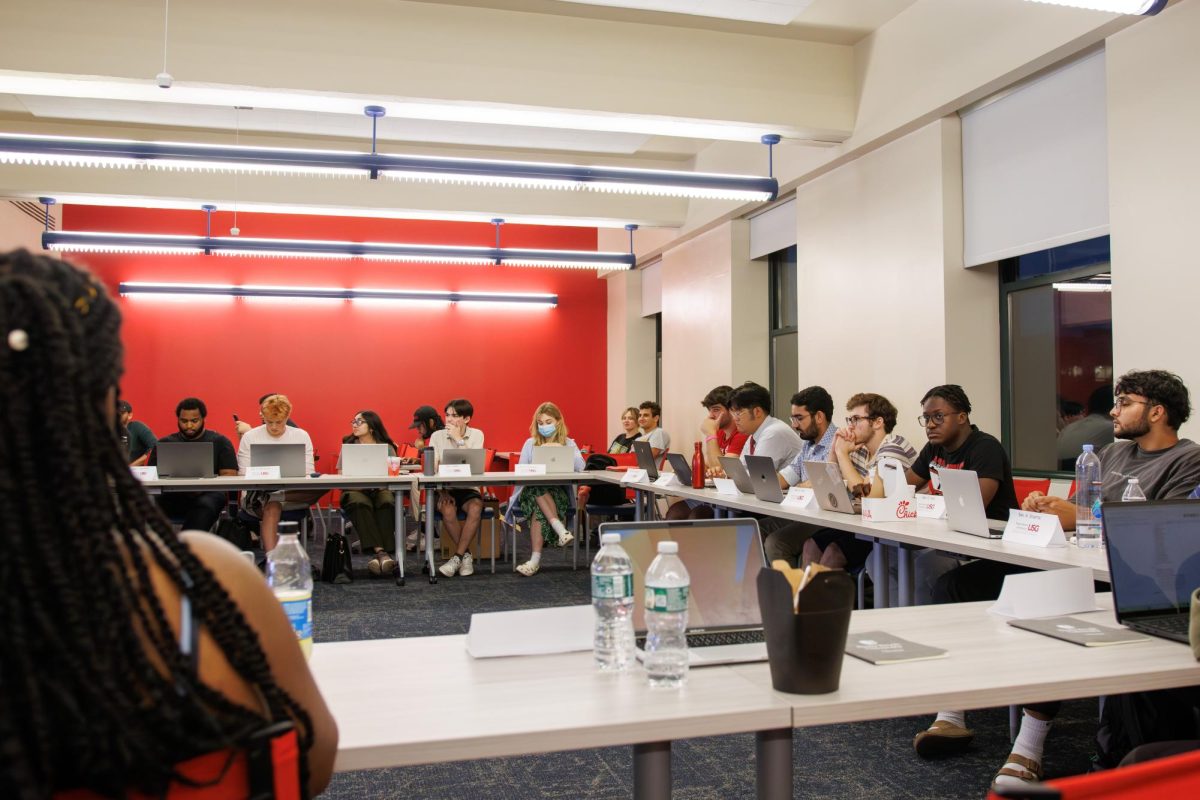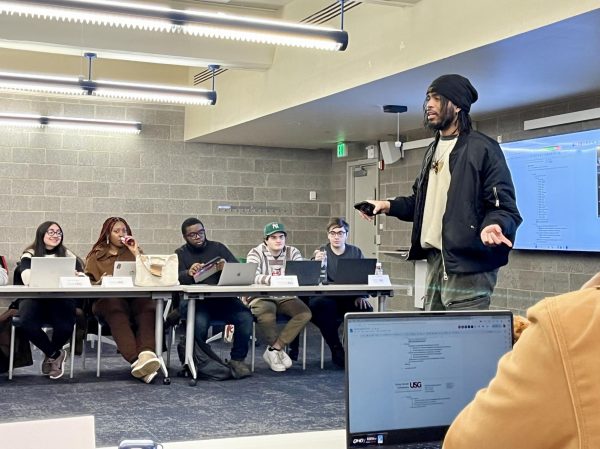
The Undergraduate Student Government (USG) Senate discussed in detail this week what the Judicial Board will look like if approved by the Senate.
USG President Devin Lobosco explained the first draft of the Judicial Board’s bylaws, encouraging the Senate to take their time combing through the details.
“I especially recommend that you [the Senate] are not passing something you’re not 100% comfortable with just for the sake of passing something,” Lobosco said.
Lobosco also reminded the Senate that a special election would occur in February if the Senate were to pass the Amendment to add a judicial branch.
Per USG’s Constitution, amendments have to be voted on by the Stony Brook University undergraduate student body to determine whether they become official or not. Lobosco clarified that if the student body were to approve the Amendment in a special election, students would then vote for someone to work as a justice for the Judicial Board in the USG General Elections in March.
“We want to make sure that ample time is given so the student body can look over it and not be blinded,” Lobosco said.
The draft of the Amendment and its bylaws the Senate reviewed at this meeting detailed that the Judicial Board would be composed of one Chief Justice and four Associate Justices, one of whom will also serve as the Vice Justice. The four Associate Justices will serve as the primary voting members of the Judicial Board, with the Chief Justice only voting in the event of a tie.
This part of the draft began a heated debate among the Senators over what number of justices should be on the Judicial Board.
At-large Senator Leon Verkhovsky said an even number of Justices who regularly vote could lead to ties occurring too often. He cited instances of the Vetting and Legislative Review Committee having split votes occurring too often because there are only six members.
“So often was there a tie, a 50-50 split, and that’s with six people [in the Vetting and Legislative Review Committee],” Verkhovsky said. “I can only imagine how frequently that would happen with four.”
Verkhovsky goes on to suggest how adding more people on the Judicial Board could often prevent the Chief Justice from becoming the tie-breaker vote. He compared how even with the even number of Senators, there were enough people for there to not be a split vote due to the “large number.” (Typically, there are 25 at-large Senators; however, a Senate position became vacant recently, hence why there are only 24 votes.)
Executive Vice President Nistha Boghra responded to Verkhovsky’s concern by saying student representation would exist within the Judicial Board through the Chief Justice. Several at-large Senators voiced concerns that student voices would not be represented if the judicial board was mainly composed of members who were not voted in by the student body.
The Senators, as a result of this discussion, put to a vote to decide whether the Amendment should allow a total of five Associate Justices instead of four. In a four to 20 vote, the Amendment would not change, allowing only four Associate Justices to be appointed.
Another heated point of contention among the Senate was how students could become Justices. In the draft shown at the meeting, the Chief Justice would be the sole position in the Judicial Board to be voted for by the student body; the four Associate Justices would be appointed by the President.
At-large Senator Adam Pareek mentioned concerns the Vetting and Legislative Review Committee had with the Amendment, stating “that every concern was answered” with the assumption that it would not happen.
In response to Pareek’s comments, at-large Senator Alex Herz said, “It’s super possible for anything to happen with a group of people, but the question is whether or not we should let the students vote on this.”
A personal concern Pareek had with the Amendment was how it could inflate the power of the President because they would be the one to appoint the four Associate Justices.
“The Senate has never rejected a candidate appointed by the President,” Pareek said. “Will the President ever be held accountable in this case?”
Herz replied that Pareek’s concern “just assume[d] the Senate wouldn’t speak their minds.” Vice President of Student Life Isaiah Daniel agreed with Herz, suggesting the Senate still has responsibilities to fulfill.
“If the Senate is not doing a good job vetting appointments then that’s on the Senate, not on the President,” Daniel said. “The Senate could very easily just deny someone who might be biased or serve the agenda of the President.”
A vote was taken to determine whether the Amendment’s language should be changed to allow the Associate Justices to be elected positions and, if vacant, to then be appointed by the President; this would mirror the language seen with the procedures of becoming Chief Justice.
In an almost unanimous agreement, the senate passed the change to the Amendment. According to Boghra, the Amendment draft will be updated by next week to reflect the change.
During the discussion, some Senators debated whether it was worth it to approve the Amendment in the first place.
“I understand the concerns, but I want to reiterate that it is basically a framework and it should be passed because the details are largely amendmendable,” at-large Senator Peter Joyce said. “It deserves to be put on the ballot.”
At-large Senator Yuchen Zhang went even further than Joyce by claiming it was the Senators’ duty to pass the Judicial Board Amendment because the “overarching goal is to have more accountability.”
Uzair Mahmud, an at-large Senator who is critical of the Amendment, reminded Senators to consider that “they still need to clearly hash things out.”
“[What] are we going to look like to students if we cannot answer all the questions they have about the Judicial Board?” Mahmud said.
Joseph Bisiani, Vice President of University Affairs, chimed in on the discussion of Judicial Board’s importance.
“Maybe [the Amendment] won’t be as great as we think it is, but we should still let the student body vote,” Bisiani said.
The Amendment to add a judicial branch to USG is still under review by the Senate and will be voted on next week.
Meeting minutes from this week’s Senate meeting will be posted on USG’s website within one to two weeks.












